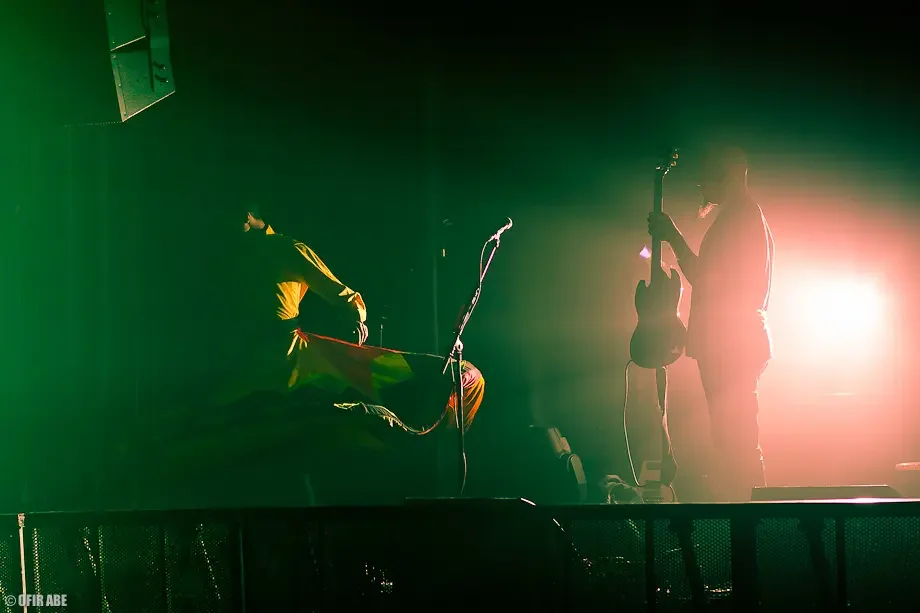What is Arab Metal? History, Stages and Evolution
Your POV is the following: you find yourself in a concert in Cairo, Beirut or Palestine. Distorted electric guitars intertwine with hypnotic sounds of Arabic Instruments; heavy drum rhythms infused with Arabic gooves. The audience is not just listening to music: they are living a form of cultural resistance. This is Arab metal, a genre that has gone from the underground to conquering international stages, still charged with political and social energy.
In this article you will discover:
What Arab metal is and what makes it unique.
How its evolution unfolded in different stages.
Its impact in the Middle East and what role it plays on a sociocultural level.
Where Arab metal is headed.
What is Arab Metal?
Arab metal is a musical subgenre that fuses the characteristics of heavy metal with the melodies, rhythms and traditional instruments of the Middle East and North Africa.
While Western metal was forged in industrial and working-class contexts, from Black Sabbath in Birmingham to Metallica in California, Arab metal was born as a response to other realities: censorship, political repression, youth unemployment and the search for identity in a globalized world. More than just a musical style, Arab metal is a form of expression and resistance that has allowed young Arabs to channel frustrations, dream of alternative futures and claim their own cultural space.
Stages of Arab Metal
1. The Origins of Arab Metal (1980s-90s): Distant echoes of Western metal
Metal arrived in the Middle East through pirated cassettes, vinyls brought by travelers and underground DJs. Bands like Metallica, Slayer or Iron Maiden became role models for young people in Morocco, Egypt, Iran and Palestine.
At this stage, Arab musicians imitated the Western sound without yet integrating their own traditions. It was an underground movement, repressed and often stigmatized as “satanic” by religious authorities and governments.
2. The Cultural Fusion (1990s-2000): The birth of Arab metal
From the 1990s onwards, some groups began to mix metal with Arab melodies. Instruments such as the oud, the darbuka or the qanun were introduced, along with scales from the maqam system, each of which is associated with very specific emotions.
Thus, pioneering bands such as Carpe Diem, Khalas, Crescent, or Arsames showed that metal could dialogue with Eastern tradition. It was not just music: it was a bridge between cultures, in a time marked by political and religious tensions.
3. Consolidation and Resistance (2000-2010): Metal as a youth voice
In the 2000s, Arab metal was no longer a copy of Western metal: it had its own personality. Concerts, although often persecuted, became spaces of youth freedom.
According to Mark LeVine in his book Heavy Metal Islam, for many young Muslims “we play heavy metal because our lives are heavy metal”: harsh, intense and full of contradictions. The genre served as an outlet against authoritarian governments and conservative societies, and the lyrics spoke of war, inequality, religion and hope, connecting with everyday realities.
4. Globalization and Recognition (2010–today): Arab metal on the world stage
With the arrival of YouTube, Spotify and social media, Arab metal broke borders. Today we can find bands from Egypt to UAE sharing the stage at European and Latin American festivals.
Globalization also brought new fusions: metalcore with maqam, black metal with Sufi poetry, death metal accompanied by Gnawa percussion… Far from being diluted, Arab metal continues to expand its sonic and cultural spectrum.
The Impact of Arab Metal
Arab metal has transcended its importance far beyond musical innovation and fusion, since from the very beginning it was presented as a political and social act. In countries where freedom of expression was limited, clandestine concerts or self-produced records became small acts of rebellion.
For the young people of the Arab world, who represent more than 60% of this population, metal is a way of asserting themselves against tradition and power, breaking stereotypes and opening themselves to globalization on their own cultural terms.
This is why bands such as Khalas (Palestine), whose lyrics speak of identity, dignity and future, fuse Arab tradition and metal with the purpose of transmitting their message and making their voices heard. In this way, they connect with audiences for three key reasons:
Authenticity: it is not a copy of Western metal, but a unique proposal in each place.
Diversity: each country contributes its traditions, from Moroccan Gnawa Sufism to the Lebanese maqam.
Universal rebellion: the cry of “I won’t do what you tell me” resonates just the same in Casablanca, Cairo or Bogotá.
The Future of Arab Metal
Arab metal continues to grow thanks to the internet and new media, which connect musicians around the world. Bands based in Europe and Latin America bring the sound of the Middle East to new audiences. In addition, the collaboration between Arab and Western musicians is generating innovative projects that combine Sufi spirituality, Arab poetry and the power of extreme metal.
What began as an underground scene is today a global cultural current, in which metal lovers participate no matter where they are. And although it still faces censorship and prejudice, every riff and every concert is a demonstration that Arab metal not only exists, but has much to say.
Conclusion
Arab metal is not just music: it is history, resistance and culture in motion. From its origins in the underground to its global expansion, it has shown itself to be a space where Arab youth rewrite their identity in front of the world.
As always, music tells us about what we were, what we are and what we aspire to be. It allows us to analyze and value our realities, as well as lead them toward a better path. Arab metal lays that bridge between past and future, tradition and innovation, to ensure an authentic, clear and purposeful roadmap.
And you, do you want to hear what Arab metal has to tell us?
